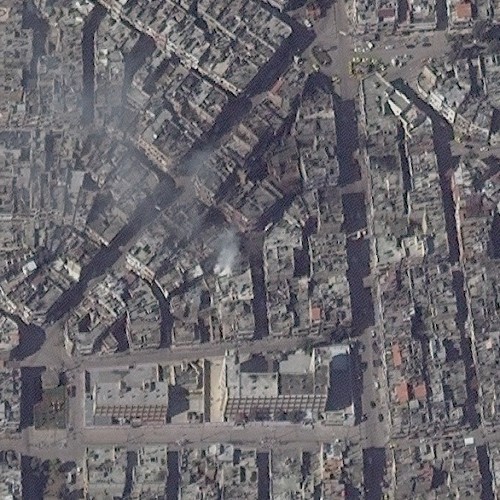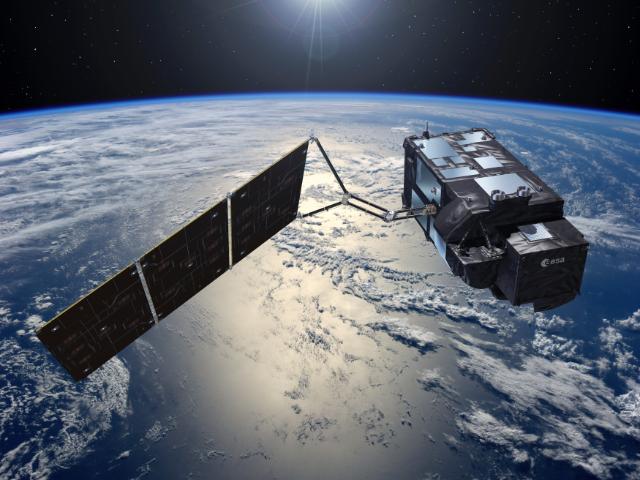Europeans in minor key on Syria (maj2)

(BRUSSELS2, European summit) In a minor key? We may find the judgment severe. But it's still worth noting. Of course, there is a whole European gesture of well-rehearsed declarations, which condemn the situation hand on heart, call for the departure of Bashar El-Assad (a tactical error perhaps), put in place a range of sanctions and say they are ready to provide humanitarian aid... But this cannot be enough.
A few tens of minutes of conversation...
Faced with the turn of events in Syria, where we are witnessing a real massacre, as well as a certain risk of destabilization of several neighboring countries (Lebanon for example), we could have expected a little more consideration from European leaders. A few tens of minutes of conversation, at the end of the European Council, where a few leaders speak on one or two points - such as the closing of embassies - cannot be enough to define a foreign policy. As if the Europeans were, at the moment, too ethnocentric on their problems of budget deficit, of indebtedness, to be able to worry about the world.
One would have expected, at the very least, a little more solemnity in the condemnation of the Assad regime, rather than a few sentences in a press conference. For example, a joint statement, oral and televised, of several of the European leaders, coming into the press room and launching, in common, an appeal to Assad and to the international community, that would have made a bit of political sense...
A concert of selfishness
The European Summit on Thursday and Friday was a real political failure with Europeans seeming more concerned about their "small" internal affairs: the Frenchman Sarkozy about his re-election, the German Merkel about the budgetary pact and convincing her majority, the Dutchman Rutte which defends its 3% deficit or Greece, Portugal, Spain which are fighting against the deficit, Ireland and the referendum, etc. We have witnessed, there, a concert of selfish people. A short-sightedness revealing a certain weakness of the European Union, reinforced by the economic crisis, and which cannot compensate for the new institutions resulting from the Treaty of Lisbon. We have thus witnessed a total absence of the power of impetus of the High Representative, of his ambition, Catherine Ashton, who is particularly at 36th below...
Lack of diplomatic pressure...
Everyone also knows that the key to the problem lies not in Damascus or Brussels, but in Moscow or Beijing. One would expect a major initiative of this kind. To put pressure. It seems pointless to have great debates, with great geopolitical reels, on the need for strategic partnerships with the major countries of this world. While the time has come for a truly strategic discussion with these two countries, there is still a bad patch. Europe is satisfied with a fine declaration.
... forecasting in crisis management
Even on the humanitarian issue, one of the main priorities of the European Union, there is something like a soft spot. If welcoming refugees fleeing repression in neighboring countries, Lebanon or Turkey, is a possibility, it may be necessary to prepare for it, in particular by mobilizing funds and people. It would also be necessary to adopt a common position on the reception of political figures, deserters from the Syrian army, by announcing a declaration. Europe is there, mute.
No appetite for a PSDC mission
As for the establishment of a peace mission - as proposed by the Arab League - with the assistance of the United Nations, there is silence... A generality to say that we support the Arab League. But no start of planning for a possible peacekeeping mission, even on a "cautious" basis, as in Libya. The High Representative, Catherine Ashton, does not really take this type of CSDP action. And when she can slip away, drag out, forget a file... she doesn't hesitate!
Europeans divided on their role on the international scene
More generally, we feel like a schism in the European position which is unable to get out of an impasse: to move from a condemnation in principle accompanied by economic sanctions to a more strategic position. I put the question to a high French representative, crossed in a corridor of the European Summit. He did not dodge the question and frankly analyzed the situation: " Yes there are two conceptions of foreign policy. On the one hand, we have those like Ashton who believe that humanitarian action is enough. And on the other, those like France who believe that there must be essentially political and diplomatic work. For us, the EU is not intended to replace the work of non-governmental organisations. »
(Update: paragraph on the "egoism" of Europeans insufficiently developed in the first version)


